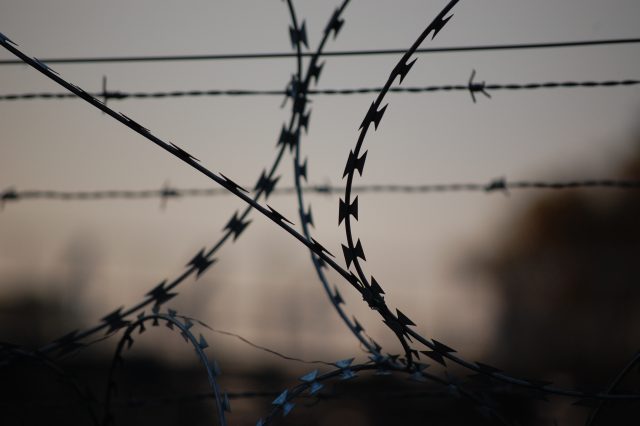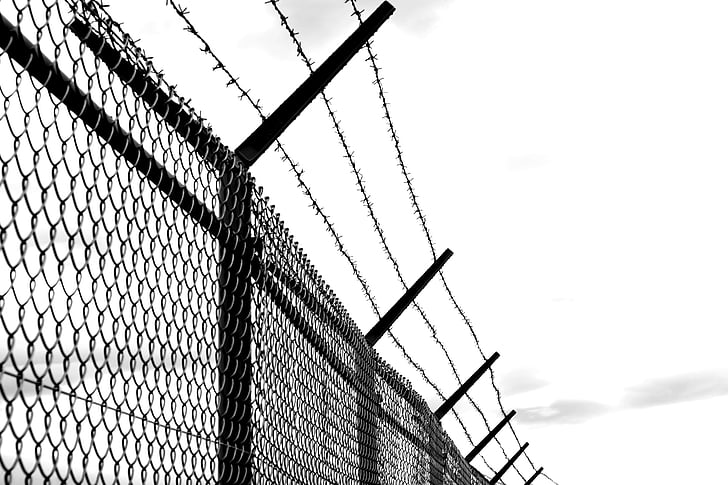
New increases in the price of cigarettes in Romania, following a three-fold increase in excise duty by the government in less than a year, are reversing efforts to fight smuggling and are leading to a setback in curbing the “black market”, which last year reached its lowest level in 15 years. But further down the line, the effect could be to weaken borders and diminish Romania’s chances of joining the Schengen area by land.
New tax hikes in Romania weaken borders, increase smuggling and lower the chances of Schengen membership, says a Fair Observer analysis. Romania has the longest border with Ukraine of any EU or NATO member state. Romania has repeatedly tried and failed to join the Schengen economic area, and this is not good for the economy as being in the Schengen area is essential as it offers not only freedom of movement but also security. The Schengen rules help stop all the major problems, from organised crime to smuggling and terrorism.
Romania could move further away from Schengen membership if it fails to secure its border with Ukraine. This border has proven to be the most lucrative in terms of smuggling and illicit trade in the entire EU, as Romania remains the country most affected by cigarette smuggling in the European Union.

Stop Contraband, a website that monitors the volume of smuggled cigarettes seized, reported that 110 million contraband cigarettes were seized by Romanian authorities in 2022 alone. But this is just the tip of the iceberg. A much larger volume of counterfeit cigarettes, worth hundreds of millions of euros, have managed to slip past the authorities’ controls, recent investigations show. The decision by the authorities in Bucharest to suddenly raise taxes for the third time in the past year is having a knock-on effect on several sectors, including the tobacco industry, which is most prone to smuggling. This will only increase smuggling of cheaper and more harmful counterfeit cigarettes and other illicit goods.
The European Anti-Fraud Office has sounded the alarm on the multiple risks of illicit trade
Increased smuggling leads to new routes being opened up and used by organised crime networks. And an increase in smuggling will open up new smuggling routes that end up being used not only by smugglers but also by organised crime networks, weakening the EU and NATO border in times of conflict, notes the Fair Observer. The NATO summit in Vilnius was aimed at defending the alliance’s eastern border. From Estonia in the north to Bulgaria in the south, NATO’s most tested and heavily militarised region could prove the most fragile, and it all comes down to politics. For NATO to prevail in ensuring the security of its member states and allies, unity and predictability must become more than an encouraging slogan.
“Governments must act to ensure domestic stability and the rule of law. Some are indeed doing a better job than others, but with a war on the eastern border, it may not be enough,” writes the same publication.
Romania sets record in fight against illegal cigarette trade
According to official data, Romania is below the EU average for illegal cigarette trade for the first time in 15 years. According to the Romanian MFA website, this is a “record”, to which the Romanian Border Police and the General Inspectorate of the Romanian Police contributed to a large extent through actions taken during 2022.
“Cigarette smuggling, including counterfeit products, is currently assessed as one of the most serious risks to border security, causing losses of millions of euros for the Romanian budget and the budgets of EU Member States. Countering this phenomenon is a priority and permanent objective of the Ministry of Interior both through its own institutional approaches and through collaboration with other state structures or with representatives of civil society,” reads the MFA website.
According to the official source cited, the police seized, in 2022, for confiscation 4 million packs of cigarettes with an approximate value of 67 million lei (13.4 million Euro), over 27,700 kg of tobacco and 23,830 kg of hookah tobacco. At the same time, five organised groups set up to commit the offence of cigarette smuggling, involving 62 people, were identified and broken up. At the level of the Romanian Police, during 2022, 782 criminal cases were registered in which 1,045 persons are under investigation. The website also cites a study by the independent research company Novel, according to which “two historical records were set in the evolution of the illicit cigarette market in Romania, as follows: the lowest annual level of trade in black market cigarettes was recorded (7.1%) and the lowest level of the illicit market recorded in a month of research (6.1%), namely July”. The MAI data also reveal that the most common method used by smugglers to bring illegal cigarettes into Romania is still the crossing of the “green border” by smugglers, generally through places difficult to access by border guards, transported to storage places or to means of transport.
Illicit cigarette trafficking entered an upward trend in 2023. Tobacco industry warns of new excise tax hikes
After a “record” high in 2022, according to Novel Research last year, the illegal cigarette market in Romania has entered an upward trend. Compared to an average of 7.1% in 2022, cigarette smuggling stood at 8.2% of total consumption in May. This means annual budget losses of €350 million for the domestic tobacco industry, its representatives say. The reason is said to be the increase in tobacco excise duty by more than 10% in two instalments over eight months. The recent increase, which was the most significant, was also the third in a single year. Representatives of tobacco companies warn that failure to meet the excise tax increase timetable, agreed by the governing coalition in 2022, will lead to a growing black market, jeopardising ongoing investments, budget contributions and, not least, Romania’s accession to Schengen.
“Last year the fifth schedule of excise duty increases for all tobacco and nicotine products for the period 2022-2026 came into force. The first increase, according to the timetable, took place in August 2022 and the second on the 1st of April 2023. In a single year, the excise duty increased by 11% – 62 lei, from 565 to 626 lei. (…) From previous experiences, when successive timetables, put in place before EU accession (since 2002), were not respected, smuggling increased sharply, the legal market shrank and the budget was damaged. The peaks were recorded in 2006, 2010, 2014. As a result, the companies draw attention to the fact that failure to comply with the excise tax increase timetable, assumed by the governing coalition in 2022, will lead to the growth of the black market, jeopardising ongoing investments, contributions to the budget and, last but not least, Romania’s accession to Schengen,” said representatives of the Romanian tobacco industry in a joint statement, quoted by Agerpres.
According to data from the National Institute of Statistics (INS), Romania’s exports of tobacco products in 2022 amounted to 1.48 billion euros, while imports amounted to 375 million euros, resulting in a positive contribution to the balance of payments of 1.1 billion euros. And the latest NSI data confirm the trend – in the first five months of the year, exports of cigarettes and heated tobacco products are among the fastest growing.
Romania second largest producer of tobacco products in the EU
The impact of the tobacco sector on Romania’s economy, excluding investment, is 1.77% of GDP. According to Eurostat, Romania, with three large factories, is the second largest producer of tobacco products in the European Union, on a par with Germany.
“If the government’s intention is to bring tobacco excise taxes to the EU average, then it should also bring purchasing power up to the European average. Romanians have 51% less purchasing power than the EU average, according to GfK Purchasing Power Europe 2022. Also, assuming we reach the level the authorities want, we wonder with deep concern, what will follow – another increase, above average? Lack of predictability is a business’s worst enemy. In 2010, after the unplanned excise duty increase of over 50% in less than nine months, smuggling exceeded 36%! Investments were stopped, people were laid off and the budget was damaged by a billion euros. As in the past, the currently announced intentions show incoherence, lack of vision and accounting calculations made on the knees”, added Gilda Lazăr, Director Corporate Affairs & Communications JTI Romania, Moldova and Bulgaria.
According to Dragoș Bucurenci Romania risks losing the significant progress made in the fight against illicit cigarette trafficking.
“If last year, our country recorded a historic low in the black market for cigarettes, a sudden increase in taxes will lead to an explosion of this phenomenon. We can see what an aggressive excise tax increase policy can lead to in France, which last year saw a record high of 39% of illicit cigarette trafficking. But Romania’s situation is much more complex: we have more than 2,000 km of the EU’s external border to defend in the face of a border war. The increase in organised crime is a real threat to national security, and the level of illicit trafficking implicitly speaks to border security in the run-up to Romania’s Schengen accession. The authorities’ efforts to fight illegal trade, which are also supported by tobacco companies, could be cancelled out by an unpredictable fiscal policy,” said Dragoș Bucurenci.



 Subscribe
Subscribe